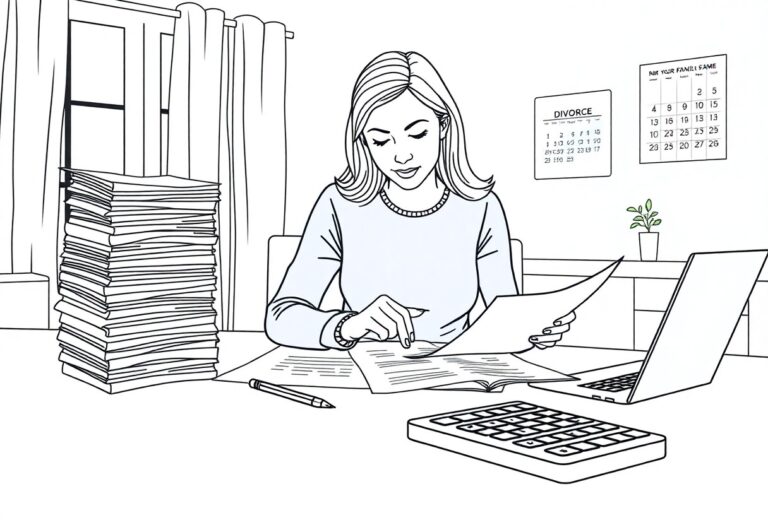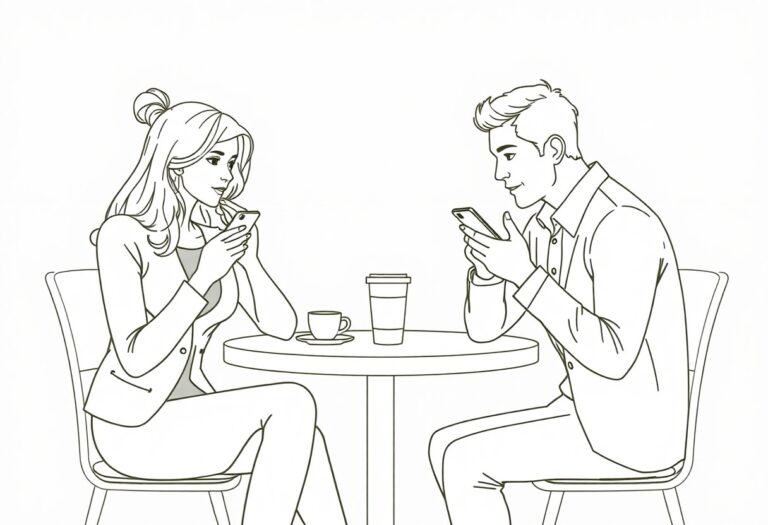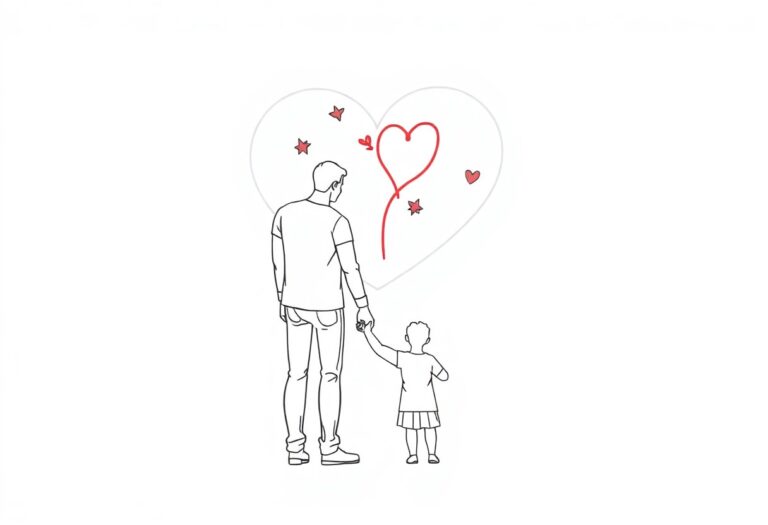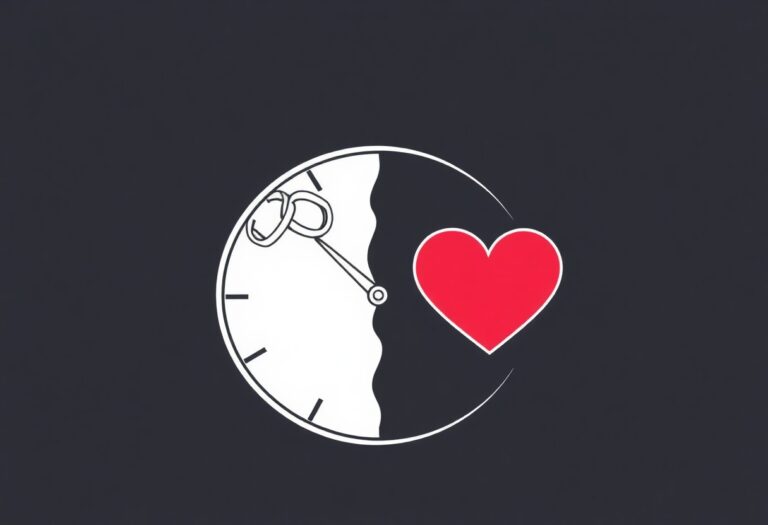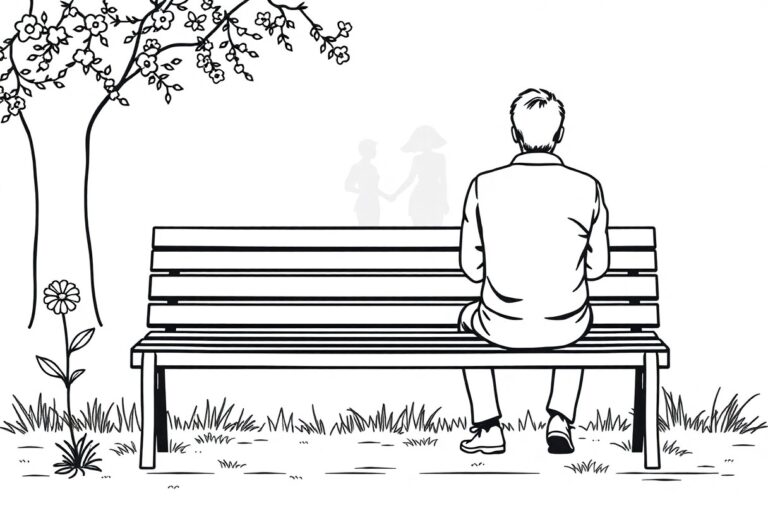Coping With Loneliness After Divorce – 6 Practical Steps
Coping With Loneliness After Divorce: Divorce can often leave you feeling isolated and overwhelmed by loneliness. While this emotional upheaval is natural, focusing on constructive ways to rebuild your life and create a sense of community is essential. In this blog post, you will discover six practical steps to help you cope with the loneliness that may arise after your divorce. By implementing these strategies, you can begin to shift your perspective, develop new relationships, and foster a more fulfilling life.
The Magic Of Making Up – Get Your Ex Back
Coping With Loneliness After Divorce: Key Takeaways:
- Recognise and accept your feelings of loneliness as a regular part of the healing process after divorce.
- Engage in activities and hobbies that you enjoy to help fill your time and boost your mood.
- Reach out to friends, family, or support groups to create connections and alleviate feelings of isolation.
- Establish a routine with self-care practices, such as exercise, meditation, or journaling, to enhance emotional well-being.
- Consider seeking professional help if feelings of loneliness persist, as therapy can provide valuable support and guidance.
Understanding Loneliness After Divorce
The journey through divorce often brings an unexpected companion: loneliness. As you navigate the emotional and practical challenges of separating from a significant other, feelings of isolation can arise. This loneliness might stem from losing companionship, shared routines, or even the support networks you once relied upon. Understanding that these feelings are a regular part of the process can help you begin to cope and find a path forward.
The Emotional Impact
Divorce can evoke a whirlwind of emotions, including sadness, anger, and confusion, leaving you feeling isolated and lost. The emotional impact can be profound, as the end of a relationship often triggers a significant shift in your identity and support system. Loneliness may intensify as you try to adjust to your new normal, making it imperative to process these emotions healthily and seek the help you need.
Common Misconceptions
Many people wrongly believe that feelings of loneliness indicate personal failure or that they should simply “get over it.” This can lead to further feelings of shame and isolation. The truth is that feeling lonely after a divorce is a common experience that affects most people; it doesn’t define your worth or capability to rebuild your life.
After a divorce, you might be led to think that experiencing loneliness means you are weak or that you failed in your marriage. These feelings are a natural response to a profound life change. Recognising that they don’t reflect your strength or value is essential. Allowing yourself to feel and acknowledge your emotions is the first step towards healing. Understanding that you are not alone in your experience and that many others share these feelings can motivate you to seek connection and support during this challenging time.
Step 1: Acknowledge Your Feelings
One of the first steps in coping with loneliness after divorce is to acknowledge your feelings. It’s natural to experience a whirlwind of emotions during this time, including sadness, anger, and confusion. By recognising and accepting these feelings, you can begin to process them effectively. Avoiding or suppressing your emotions only prolongs your suffering, while acknowledging them can lead to healing and understanding. Embrace this journey as a path to personal growth and self-discovery.
The Importance of Acceptance
Accepting your feelings means validating your experiences without judgment. This step is vital as it allows you to recognise that your emotions are a normal response to loss. Acceptance does not mean you will not feel pain; it signifies that you’re ready to face your feelings head-on. Once you accept what you’re going through, you can transition towards healing and rebuilding your life.
Practicing Self-Compassion
Along with acceptance, practising self-compassion is vital to coping with loneliness. This means treating yourself with the same kindness you would offer to a friend in a similar situation. Allow yourself to feel pain without self-criticism and acknowledge that everyone experiences hardships. Making space for self-forgiveness helps you move forward, fostering resilience and emotional well-being.
The importance of self-compassion cannot be overstated during this difficult time. It serves as a support system that helps to counteract negative self-talk and feelings of worthlessness. By treating yourself with love and understanding, you are less likely to fall into self-destructive behaviours that can exacerbate loneliness. Engaging in self-care activities that promote your well-being elevates your mood and encourages a healthier mindset. Recall that being gentle with yourself is not a sign of weakness; it is a demonstration of strength and resilience as you navigate life’s challenges post-divorce.
Step 2: Reach Out for Support
After experiencing a divorce, seeking support from friends, family, or even support groups is necessary. Surrounding yourself with understanding individuals can provide a sense of belonging and remind you that you are not alone in this journey. Sharing your feelings with others can help you process your emotions and gain perspective, ultimately aiding your healing process.
Building a Support Network
At this stage, it is important to focus on building a strong support network. Reach out to trusted friends or family members who can listen and encourage you. Consider joining a local support group or online community where you can connect with others who have gone through similar experiences. A supportive group can make a transformative difference in your emotional recovery.
Utilising Professional Help
Reach out for professional help if you find it challenging to cope independently. Therapists or counsellors can provide valuable tools and techniques to help you navigate your feelings of loneliness and despair. They can also offer guidance on rebuilding your life post-divorce, ensuring you have the support you need as you transition into this new chapter.
Consequently, seeking professional help can significantly facilitate your healing journey. A trained mental health professional can assist you in understanding your emotions and developing coping strategies tailored to your situation. If you encounter feelings of depression or anxiety, it’s critical to consult a professional who can provide appropriate resources and mindfulness techniques. Engaging with a therapist can offer a safe space to express your thoughts and feelings while equipping you with skills to foster resilience and emotional well-being.
Step 3: Establish a Routine
Many people find solace in establishing a daily routine after a divorce. Having a structured day not only brings a sense of normalcy but also helps to fill the void left by the relationship. By creating a schedule that includes work, errands, and self-care, you can prevent the overwhelming feeling of loneliness from creeping in and foster a more purposeful existence.
Creating Daily Structure
A routine should encompass various aspects of your life for it to be effective. Start by setting specific times for waking up, eating, and sleeping, ensuring you maintain a healthy lifestyle. Incorporate work or productive tasks and allow time for relaxation and reflection throughout the day. This structure helps create a rhythm to your life, reducing feelings of aimlessness.
Incorporating Positive Activities
Besides creating a daily structure, it’s vital to integrate activities that bring you joy and fulfilment. You might consider picking up a new hobby, joining a fitness class, or volunteering in your community. These positive activities can enhance your mood and help you connect with others who share similar interests, reducing your feelings of isolation.
Including a variety of positive activities in your routine can combat loneliness and promote personal growth. You could try engaging in creative pursuits like painting, writing, or learning a musical instrument, which often provide a gratifying outlet for your emotions. Additionally, consider joining a local club or support group, which can foster connections and friendships. Prioritising social interactions and physical activity will enhance your overall well-being by releasing endorphins and cultivating a sense of belonging.
Step 4: Explore New Interests
Despite the heaviness of loneliness after divorce, exploring new interests can bring a refreshing change to your life. Engaging in activities you have always wanted to try or revisiting hobbies that once brought you joy can foster a sense of accomplishment and connection. By stepping out of your comfort zone, you’ll not only occupy your mind but may also find new social circles to enrich your life, making this a powerful tool for your emotional recovery.
Pursuing Hobbies and Passions
Pursuing hobbies and passions that excite you is vital to rediscovering your sense of self. Whether painting, gardening, or learning a new instrument, immersing yourself in creative activities can provide a therapeutic outlet. Embrace the process and allow yourself to find fulfilment in these interests, leading to enhanced self-esteem and a sense of purpose.
Joining Community Groups
One of the most effective ways to combat loneliness is to join community groups that focus on your interests. Being part of a group provides you with opportunities to meet like-minded individuals and share experiences. This connection can be incredibly rewarding, as it fosters a sense of belonging during a time that may feel isolating.
Hobbies can serve as a proactive avenue to build new relationships and find support groups within your community. When you engage in sports teams, book clubs, or volunteer organisations, you open yourself up to positive interactions and the chance to meet others who understand your situation. These community connections can help combat the feelings of isolation that often come with divorce, making your journey toward healing more manageable and enriching. Don’t hesitate to leave your comfort zone; the potential rewards can be life-changing.
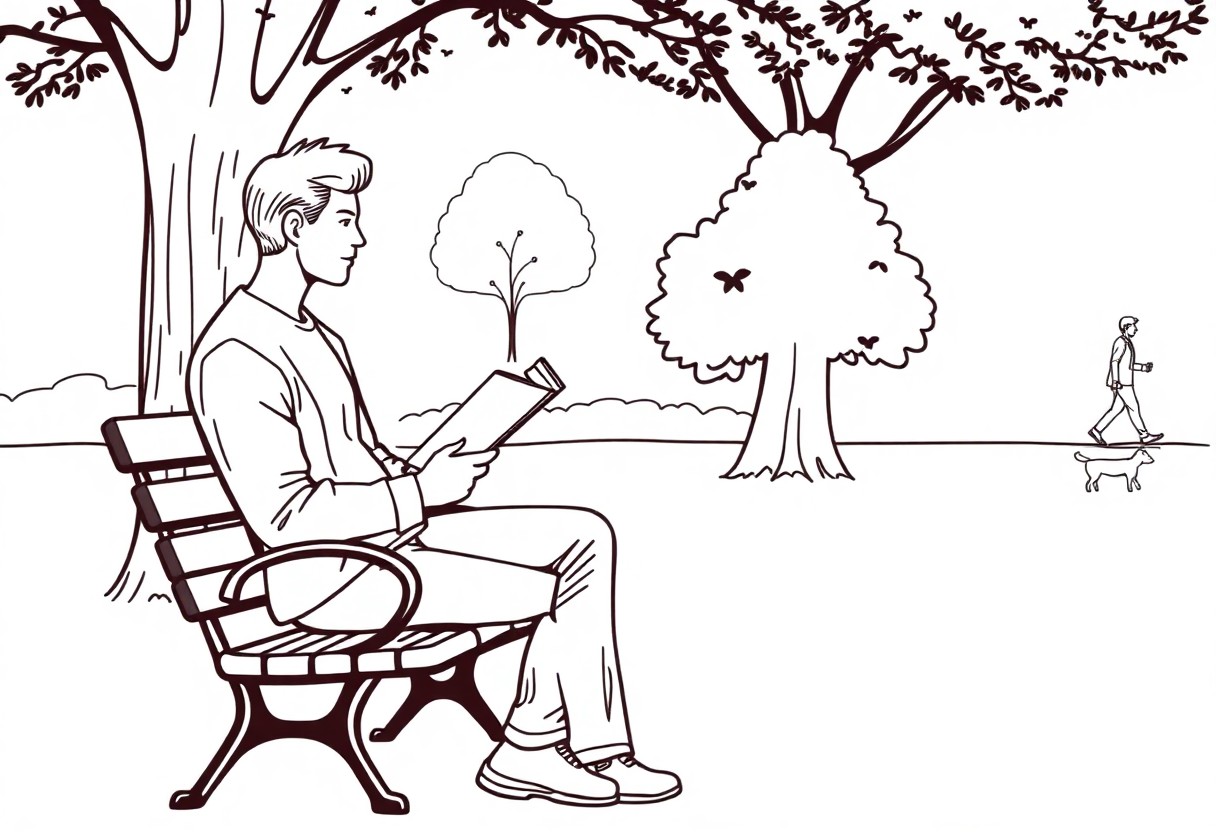
Step 5: Practice Mindfulness and Self-Care
For those navigating the emotional turmoil of divorce, incorporating mindfulness and self-care into their daily routine can be transformative. Engaging in these practices helps you stay present and fosters a sense of peace and acceptance. By prioritising your mental and emotional well-being, you create a nurturing environment where healing can flourish.
Techniques for Mindfulness
Consider meditation, deep breathing exercises, or mindful walking along your journey to greater self-awareness. These practices allow you to connect with your feelings without judgment, promoting a greater understanding of your thoughts and emotions. Even a few minutes each day can make a significant difference in your overall well-being.
Importance of Physical Health
Maintaining physical health is vital for overall recovery during emotional hardship. Regular exercise, a balanced diet, and sufficient sleep improve your mood and enhance your resilience to stress. Your body and mind are deeply interconnected; therefore, when you nurture your physical health, your emotional state improves.
Integrating physical health into your self-care routine can significantly impact your emotional well-being. Regular physical activity helps release endorphins, which can lift your mood and combat feelings of sadness. A nutritious diet of vitamins and minerals fuels your body, enabling better mental clarity and emotional stability. Additionally, prioritising adequate sleep can enhance your capacity to cope with stress effectively. When you consciously take care of your physical health, you take significant steps toward reducing loneliness and fostering a sense of empowerment.
Summing Up
Considering this, coping with loneliness after divorce can be a challenging journey. By implementing these six practical steps, you can effectively manage your feelings and gradually rebuild your social connections. Prioritise self-care, seek support, engage in activities that bring joy, and consider professional help if needed. Each step you take brings you closer to emotional healing and a fulfilling life beyond your divorce. Embrace this opportunity for growth and rediscovery, allowing yourself to heal and thrive.
FAQ: Coping With Loneliness After Divorce – 6 Practical Steps
Q: What are some immediate steps I can take to address my feelings of loneliness after a divorce?
A: It’s common to feel lonely after a divorce, but you can use several immediate strategies. Start by reaching out to friends or family members you feel comfortable with. Engaging in social activities, even if you don’t feel like it, can help bridge the gap of loneliness. Consider joining a local support group to connect with others with similar experiences. Lastly, investing time in a new hobby or interest can be a distraction and a means to meet new people.
Q: How can I develop a support network to help cope with loneliness?
A: Building a support network involves seeking people who understand what you’re going through and can provide emotional backing. Start by identifying friends or family members you can confide in about your feelings. You might also look for local community groups or online forums where individuals share similar experiences. Volunteering in your community can also introduce you to new individuals and cultivate connections, positively contributing to your mental well-being.
Q: How does engaging in self-care help alleviate loneliness after a divorce?
A: Self-care is vital in navigating feelings of loneliness. It involves dedicating time and effort to care for your physical, emotional, and mental health. This could include exercise, which releases endorphins and can improve your mood, or mindfulness and meditation, which can help centre your thoughts. Additionally, pampering yourself with activities you enjoy, whether reading, cooking, or taking long walks, helps reinforce your sense of self-worth and can diminish feelings of isolation.
Q: What role does setting goals play in overcoming loneliness after divorce?
A: Setting goals can be a powerful tool in overcoming loneliness. By establishing both short-term and long-term goals, you create a sense of purpose and direction. These goals can be personal, such as improving a skill, or social, like reaching out to new friends. Achieving even small goals can provide a sense of accomplishment and progress, which helps combat the negative spiral of loneliness and can motivate you to engage further in social activities.
Q: Can professional help be beneficial when coping with loneliness after a divorce?
A: Yes, seeking professional help can be highly beneficial when dealing with loneliness after a divorce. Therapists or counsellors can provide a safe space to express feelings and navigate complex emotions. They can also equip you with coping strategies tailored to your situation and help you explore underlying issues that may be contributing to your loneliness. Professional guidance can foster personal growth and facilitate a smoother adjustment to life post-divorce.
Separation and divorce | divorce mediation | Dating after divorce


